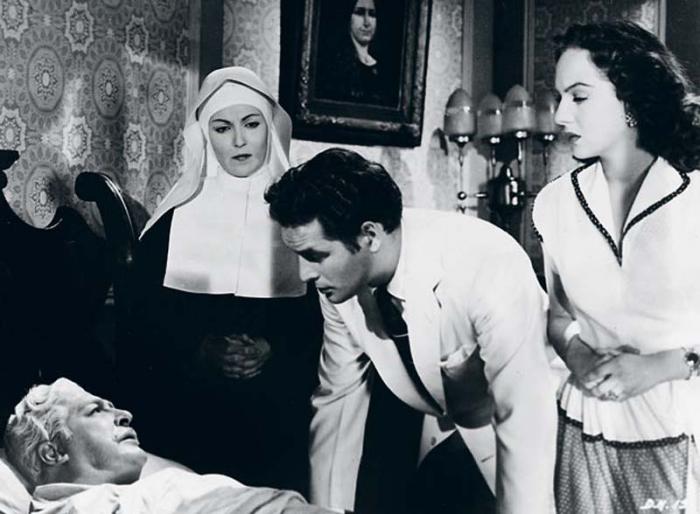DEBUT
Like Brazilian Carmen Miranda, nervous and tiny, with a great sense of rhythm…with its typical instruments, the Cuban radio serial was born. It was in the hands of a Romeo, or let’s say a Shakespeare of melodrama who espoused the right of birth and crying at all cost.
That Shakespeare’s name was Félix B. Caignet; and his job was to write. Not for theatre, but for CMQ radio station, under the auspices of GoarMestre.
Maybe for that reason, when Caignet delivered the play to the boss, and the latter wrote OK on the manuscript, he didn’t suspect it would become the front cover of Cuban radio serials in the world.
Like the latter, this emerged from folk culture, it left home to go around the world and took with it an authentic folklore. After that, some potentialities were visualized regarding the native character of Latin America’s culture, other forms of art expression, and other artists. But not everything was rosy in this story.
THE FIRST STEPS AND SETBACKS
With lucidityAlejoCarpentier expressed: “the first orchestras, the first artists who begin making tours try to be faithful to their rhythms preserving the most genuine style. But as years go by”… some things happen: that initial art widely accepted, changes into a good business, based on edition and reissue; the powerful editors begin approaching the authors offor the sake of their industries.
Later, as the original authors were not enough to meet the growing demand –What a visionary Carpentier! -The art businessmen called for the services of other artists, sometimes culturally divorced from the first ones, who interpret the plays of others with greater or lesser success.
The ultimate result is simplification of the original play, like happened with the Cuban radio serial after having travelled, beyond the borders of media, Puerto Rico , Ecuador, Peru, Venezuela, Mexico and especially Brazil, where, as a curiosity, “el dolor de Mamá Dolores“, leading role in El derecho de nacer beat Cuba’s audience ratings crowning the plot as well as genre.
Not enough with this, the play was adapted for the movies …and even for the newly born television.
And let’s be honest, after so much, is it possible to believe that the main representative of the Cuban radio serial would return intact to its homeland? In every version, the heir of melodrama has lost its essence.
Simply because the majority does not understand what this novel is about and, like Mexican journalist Vicente Leñero said, they make it “disrespecting the melodrama, without the least appreciation for schmaltzy: They produce a botched job in haste, people cry anyway and turn Félix B. Caignet into any person.”
Rich in irony, Leñero’s text points out crucial details for reflection: first the melodrama is a genre which deserves respect like any other.
It is a genre which handles its own and clearly defined codes. In addition, some people enjoy bloody scenes in soap operas with capos; others are seduced by vindicated heroines in leading roles; some others welcome the dragons, witches and giants from a fantastic world that paradoxically tells more about human nature than a Butterfly sighing when love falls short.
ANTI-CLIMAX
However, I don’t deny the evolution of melodrama –today quite close to the history of life (Or what about the history of life inDobleJuego, of which no one forgets that “my family is burning up”?).
Despite the rich tradition of the genre in Cuba – where the recipe emerged-, I’m not hoping to retake the codes of Mamá Dolores times. Combining the texts and the contexts is important to create materials with impact, especially with positive results; still when in the current Cuban soap opera none of this is achieved.
As part of the Cuban TV, which is public, subsidized, and is taking on a high social commitment, this space takes responsibility with the public, and the values for which the citizens have fought for some years, although that responsibility can be shown through constructive criticism.
But sometimes, the excess of criticism are the sign of poorness in expressive resources. Therein the works are devoid of acceptable quality, and those responsible fall back on the production, the lights, the cameras, and even the action.
But the artists are creators par excellence. The living statues standing in the sun in Old Havana make use of stunning materials to get dressed and make themselvesup, just like ISDI students make lamps and other useful objects with cloth, bags, whatever.
Of course, without minimizing the true problems the Cuban television at large is going through, or the influence of the foreign TV package … television is an industry and it needs money, which makes it difficult, for instance the production of soap operas of historical setting, or involving historic personalities, although the efforts made some years ago in Las huérfanas de la Obrapía orAl compás del Sonwere not in vain.
The willingness of artists for approaching urban and rural sets is also recognized, even when the clothes for the work in Tierras de Fuego was qualified as implausible and the couple of farmers in Latidoscompartidosserved, among other things, to add humor to Shakespeare’s comedy, where jesters had a key role.
The latter, despite this detail, was received by the public as a drop of water amid so much dryness.
On the other hand, I also know many of our artists are lured by tempting offers, and I have received some lessons about the media’s objective, and I guess this thinking is commonplace among specialists that a complementary relation should exist between educational-cognitive and entertainment.
Nonetheless, as far as fiction is concerned some elements have to be carefully considered: It’s not the same to inform or state opinions and to entertain, even when entertainment involves information and opinion, apart from giving rise to opinions.
I’m not only referring to the national media, but also to the foreign communication products, which are gaining upswing among the Cuban viewers. If our products reproduce values, traditions and way of living, the foreign ones obviously do this inserting their ideology in the public.
CURTAINS DOWN WITHOUT APPLAUSES
The Cuban soap opera calls for Romeos and Shakespeares. It is asking, from its deathbed, if after having given the world the recipe we have run out of ingredients.
As it holds on to the right of birth, but never of dying, it asks among its last wills to look to the artist’s creativity; but also to the institutional and state support. So the Cuban artist and public can travel and come back, but not to go away to Brazil or any other country, more distant and exotic … without fears for the melodrama.




